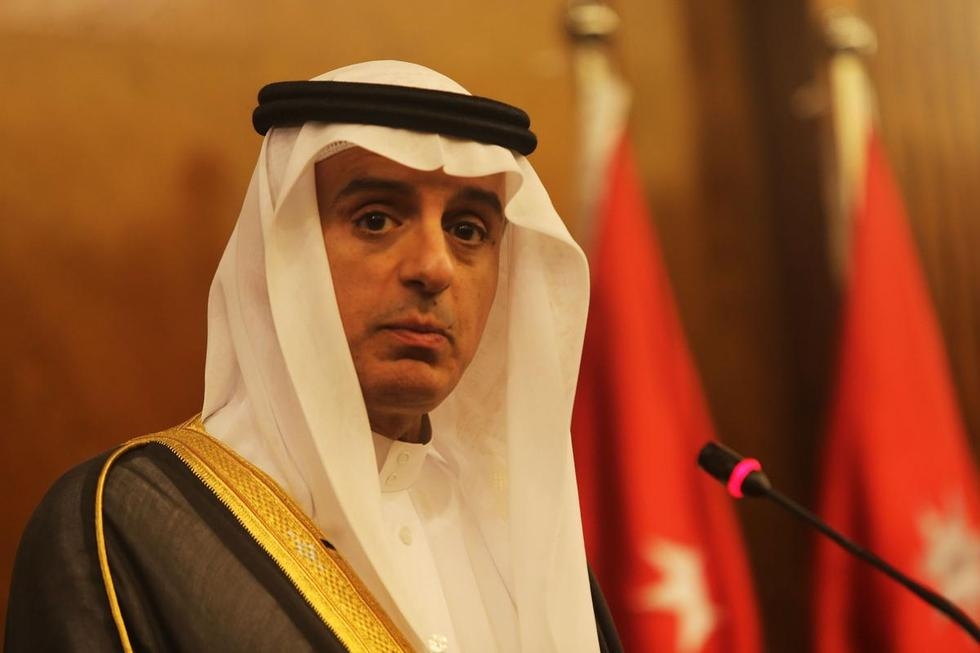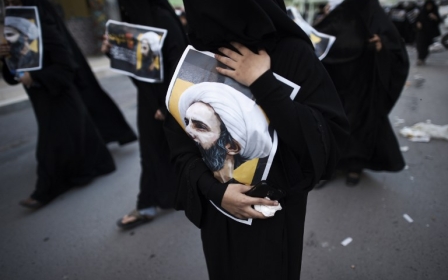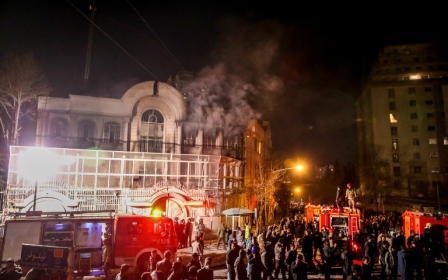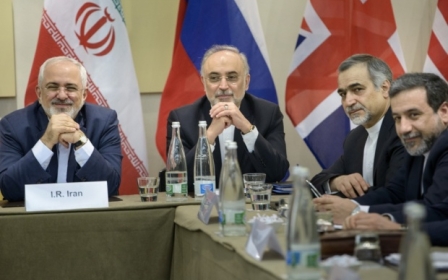Saudi Arabia severs ties with Iran

Saudi Arabia's foreign minister announced on Sunday that his country had severed ties with Iran, in a move that exacerbates already-existing tensions between the two regional powerhouses and threatens to derail peace prospects in Syria and Yemen.
Foreign Minister Adel al-Jubeir said that cutting ties was a response to Iranian demonstrators storming Saudi's Tehran embassy to protest against Riyadh's execution of Shia cleric Nimr al-Nimr.
Jubeir also said that all Iranian diplomats must leave Saudi Arabia within 48 hours.
He added that the attack on the Saudi Embassy in Tehran was deliberate and that the contents of the embassy were destroyed. There was no co-operation from the Iranian authorities, he said.
Most of the Saudi staff of the embassy have left via a flight from the UAE and are now in Dubai, the foreign minister added. He also accused Iran of hosting terrorists, including the leaders of al-Qaeda.
In a calm, but angry tones, Jubeir claimed to have defeated Iran in Yemen, referring to the Saudi-led coalition against Houthi fighters in the country. He added that Saudi Arabia would face Iran wherever it surfaced.
The United States responded to the Saudi move by urging Mideast leaders to take measures to soothe tensions in the region.
"We're aware that the Kingdom of Saudi Arabia has ordered the closure of Iranian diplomatic missions in the kingdom," US State Department spokesman John Kirby said about the diplomatic rift.
"We believe that diplomatic engagement and direct conversations remain essential in working through differences and we will continue to urge leaders across the region to take affirmative steps to calm tensions."
On Saturday, a mob attacked the Saudi embassy in Tehran and a consulate in second city Mashhad amid protests against Saudi Arabia's execution of Nimr.
The 56-year-old, a force behind 2011 anti-government protests in eastern Saudi Arabia, was among 47 convicted men put to death on Saturday in the kingdom.
The others were Shia activists and Sunnis who the Saudi interior ministry said were involved in al-Qaeda attacks, with some beheaded and others shot by firing squad.
Iran arrested 44 people over the embassy assault, which President Hassan Rouhani described as "totally unjustifiable".
But the Islamic Republic's Supreme Leader Ayatollah Ali Khamenei condemned Nimr's execution, saying "God will not forgive" Saudi Arabia for putting him to death.
Jubeir responded on Sunday by saying: "Iran's history is full of negative interference and hostility in Arab issues, and it is always accompanied by destruction."
'Sectarian tensions'
Nimr's execution was widely condemned.
UN Secretary General Ban Ki-moon said he was "deeply dismayed" while the United States warned that Riyadh risked "exacerbating sectarian tensions at a time when they urgently need to be reduced".
The European Union, Germany and France deplored the executions, while Britain, which is careful to protect trade and investment links with Saudi Arabia, reiterated its opposition to the death penalty.
Saudi Arabia's interior ministry said the executed men were convicted of adopting the radical "takfiri" ideology, joining "terrorist organisations" and implementing "criminal plots".
Executions have soared in Saudi Arabia since King Salman ascended the throne a year ago with 153 people put to death in 2015, nearly twice as many as in 2014, for crimes ranging from murder to drug trafficking, armed robbery, rape and apostasy.
Human Rights Watch said Saturday's "mass execution was the largest since 1980" when 68 militants who had seized Mecca's Grand Mosque were beheaded, and called it a "shameful start to 2016".
Amnesty International said Saudi Arabia was using Nimr's execution "to settle political scores".
But on Sunday Jubeir said those executed had received "fair and transparent" trials and were convicted of carrying out "terrorist operations that led to the deaths of innocents".
Relations between Sunni-ruled Saudi Arabia and Shia-ruled Iran have been strained for decades, with Riyadh frequently accusing Tehran of interfering in Arab affairs.
Both countries are also divided over a raft of issues, namely the nearly five-year war in Syria, where Iran is allied with the government of embattled President Bashar al-Assad, and Yemen where Saudi is leading the fight against Zaidi Shia Houthi fighters it claims are backed by Iran.
New MEE newsletter: Jerusalem Dispatch
Sign up to get the latest insights and analysis on Israel-Palestine, alongside Turkey Unpacked and other MEE newsletters
Middle East Eye delivers independent and unrivalled coverage and analysis of the Middle East, North Africa and beyond. To learn more about republishing this content and the associated fees, please fill out this form. More about MEE can be found here.




